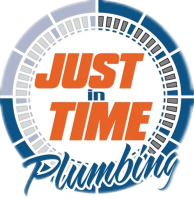As a business owner in North Carolina, ensuring compliance with commercial plumbing regulations is crucial for the safety and functionality of your establishment. Understanding the specific requirements and regulations governing commercial plumbing can help you avoid costly fines, penalties, and potential disruptions to your operations. In this comprehensive guide, we’ll explore the essential commercial plumbing regulations that businesses need to know in North Carolina.
1. Plumbing Code Requirements
North Carolina adheres to the North Carolina State Building Code, which includes regulations for plumbing systems in commercial buildings. The plumbing code outlines standards for the design, installation, and maintenance of plumbing systems to ensure they meet safety and sanitation requirements. Compliance with the plumbing code is essential for obtaining building permits and passing inspections for new construction, renovations, and plumbing upgrades.
2. Backflow Prevention
Backflow prevention is a critical component of commercial plumbing regulations aimed at protecting public health and preventing contamination of the potable water supply. Businesses in North Carolina are required to install backflow prevention devices on their water supply lines to prevent the backflow of contaminated water into the municipal water system. These devices must be installed, tested, and maintained according to state and local regulations.
3. Grease Trap Requirements
Restaurants, food service establishments, and commercial kitchens in North Carolina are subject to regulations governing grease traps and interceptors. Grease traps are designed to capture fats, oils, and grease (FOG) from wastewater generated during food preparation and cooking to prevent clogs and sewer backups. Businesses must adhere to specific requirements for the size, installation, and maintenance of grease traps to comply with state and local regulations.
4. Fixture Requirements
Commercial buildings in North Carolina must comply with regulations regarding the installation and use of plumbing fixtures, including sinks, toilets, urinals, and showers. These regulations specify requirements for fixture types, sizes, accessibility, and water efficiency to promote water conservation and ensure compliance with building codes. Businesses must ensure that their plumbing fixtures meet the applicable requirements to pass inspections and maintain compliance.
5. Water Heater Regulations
Commercial buildings in North Carolina are subject to regulations governing the installation and operation of water heaters. These regulations specify requirements for water heater sizing, installation, venting, and safety features to ensure proper functioning and prevent hazards such as scalding and carbon monoxide leaks. Businesses must adhere to these regulations when installing or replacing water heaters to comply with building codes and ensure safety.
6. Drainage and Venting
Proper drainage and venting are essential aspects of commercial plumbing systems to ensure effective wastewater removal and prevent sewer odors and backups. North Carolina regulations specify requirements for the design, installation, and maintenance of drainage and venting systems to ensure they meet performance standards and comply with building codes. Businesses must ensure that their plumbing systems are properly designed and installed to facilitate drainage and venting as required by regulations.
7. Permitting and Inspections
Businesses in North Carolina are required to obtain plumbing permits for new construction, renovations, and plumbing installations or upgrades. These permits are issued by the local building department and are necessary to ensure that plumbing work meets code requirements and is completed safely and correctly. Inspections are conducted at various stages of the project to verify compliance with regulations and ensure the safety and functionality of the plumbing system.
Conclusion
Compliance with commercial plumbing regulations is essential for businesses in North Carolina to ensure the safety, functionality, and legality of their plumbing systems. By understanding and adhering to the specific requirements outlined in the plumbing code, businesses can avoid costly fines, penalties, and disruptions to their operations. Partnering with a reputable plumbing contractor with experience in commercial projects can help businesses navigate the complexities of plumbing regulations and ensure compliance with state and local requirements.
At Just in Time Plumbing, we specialize in commercial plumbing services and can assist businesses in North Carolina with all their plumbing needs. From installations and upgrades to repairs and maintenance, our team of licensed plumbers is dedicated to delivering high-quality workmanship and exceptional service. Contact us today to learn more about how we can help your business stay compliant with commercial plumbing regulations in North Carolina.

